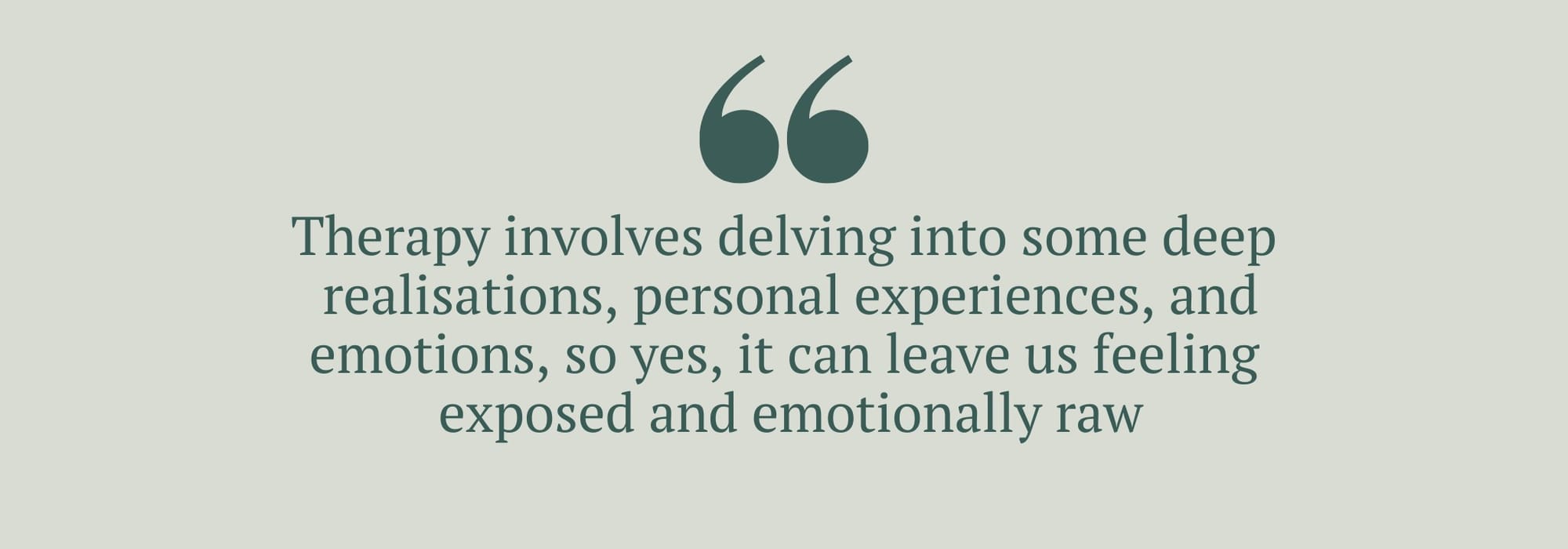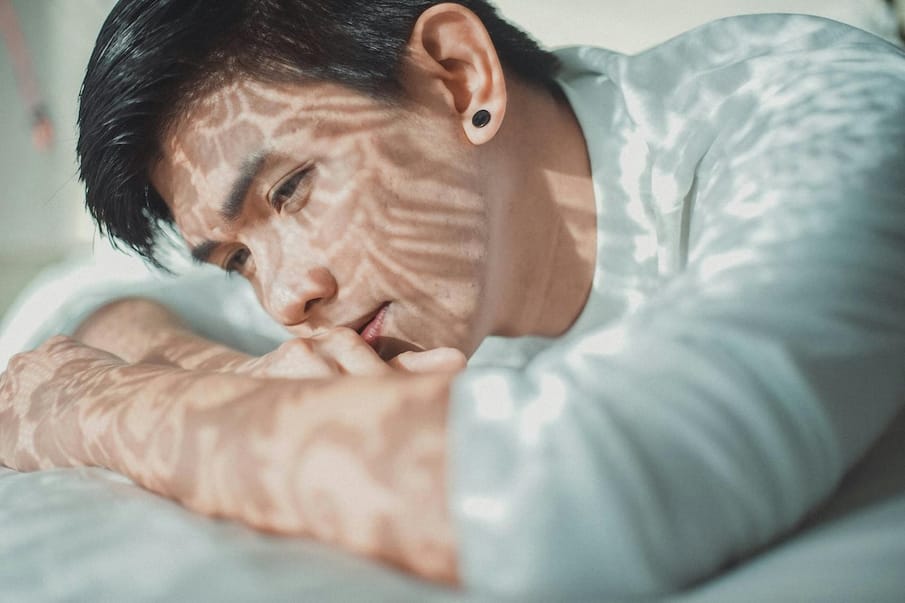Do you sometimes feel embarrassed, ashamed, and exposed after sharing your deepest insecurities and emotions with your therapist? Fear not, this can be a sign that your therapy is really working
Picture this: you’re on your way home from another therapy session, and the feeling of relief is palpable. It felt good to offload your deepest, scariest thoughts and fears.
But just hours later, a gut-wrenching dread is creeping in. Suddenly you don’t feel quite so relieved. You feel vulnerable and exposed, ashamed at having shared so much.
What if my therapist was secretly judging me, you might wonder? What if I was wrong to get things off my chest? How will I ever go back to face them?
This is known as a vulnerability hangover, a term coined by vulnerability researcher Brené Brown. It’s used to describe the embarrassment, shame, and exposure we experience when we feel we’ve been too open about our thoughts and feelings.
It can happen when you worry that you’ve divulged too much to a friend, family member, or colleague, but you might experience it most acutely in therapy.
Though it’s a safe space, therapy is often where we get candid. It’s a place where we divulge our innermost thoughts, insecurities, and fears. And when you aren’t used to sharing so openly, it’s normal to encounter regret.
There's power in vulnerability
If you’ve ever found yourself cringing post-therapy session, don’t panic. “This feeling is actually very common, and happens because therapy is the space to overshare – something we actively try not to do in our everyday lives,” assures solutions-focused psychotherapist Gin Lalli.
“Therapy involves delving into some deep realisations, personal experiences, and emotions, so yes, it can leave us feeling exposed and emotionally raw,” she explains.

While this might be uncomfortable, it’s not necessarily a bad thing. In fact, Gin says it can signify progress.
“Experiencing vulnerability during or after a session usually means you’ve touched on something significant and meaningful,” she says. “It signals growth, progression, and the start of better self-awareness.”
Chances are you feel vulnerable because you’ve just exposed something you normally keep hidden, and saying it out loud can be the first step of change.
“A vulnerability hangover can be a sign that you’re confronting difficult emotions instead of avoiding them,” says Gin. “This will encourage introspection, which is where you gain insights on how to move forward.”
A judgement-free zone
Even with this knowledge, it can be difficult to get over the feeling that you’re being judged. And in some cases, this feeling can be so intense that it prevents you from continuing your therapy journey.
“Let me assure you that your therapist will never judge you, that’s not what we do,” Gin says. “We’ve heard it all before, we are trained, and we have natural compassion and understanding – it’s often why therapists are drawn to the profession in the first place.”
It might also help you to know that therapists are bound by strict codes of confidentiality and ethical standards, so rest assured, anything you have shared, won’t go any further.
Finding relief
Still, if you find yourself in the depths of a vulnerability hangover, you might be wondering how to move through the discomfort.
Gin has some in-the-moment strategies that might help. Firstly, call on self-compassion. “It’s OK to feel vulnerable and uncomfortable, and you are brave for confronting difficult emotions,” Gin says.
Next, engage in grounding techniques. If you’re not sure how, your therapist can provide some ideas. Gin advises focusing on your breathing for several minutes, or using sensory tools like holding a comfortable object to centre yourself. It can be something as simple as a warm cup of tea.

If you’re worried that you’ve overshared, you might assume talking about your feelings isn’t going to help. Not so, says Gin. She recommends talking to a loved one about your vulnerability hangover, or writing about it in a journal.
Finally, find self-care activities that nurture you. It could be a warm bath, listening to soothing music, or going for a long walk. Gin says the latter can be particularly useful if you’re feeling restless or agitated post-therapy.
Leaning into discomfort
These strategies can provide some relief from the uncomfortable feeling of exposure, but you might find you’re still worried about attending your next therapy session.
The really good news about opening up? It gets easier the more you do it – so take that perspective into your next session.
“Gradually exposing yourself to vulnerability, and acknowledging difficult emotions, means you can get more comfortable with discomfort over time – you begin to realise it’s not as scary as you first thought,” Gin points out.
“Remember,” she adds, “increased openness in therapy can lead to better insights, stronger therapeutic relationships, and more profound personal growth. This is personal development after all, and the tools you learn along the way can serve you well in the future.”
If you’re feeling nervous about your next therapy session, Gin advises leaning into your emotions.
“Notice and acknowledge your emotions, without judgement. Observe them and be curious about them and the underlying causes,” she says.
It’s a good idea to set intentions, too. “Before each session, reflect on what you hope to gain from being vulnerable. I often ask clients what their hopes are for this particular session,” says Gin.
Your goal could be something as simple as challenging perfectionism, and acknowledging that vulnerability is a normal human emotion.
Whatever your intentions, she says it’s important to trust in the therapeutic process and your therapist’s guidance. Remember, you’re in safe hands!
Finally? Recognise and celebrate your courage in being vulnerable. It takes guts to keep showing up for yourself.
“Each step forward, no matter how small, is significant in your personal journey – you can do this,” Gin says. “A therapist is there to hold your hand at the beginning, and let go when we know you can fly.”

Ultimately, Gin says, you should use the discomfort as a sign of progress; an indication that you are getting the most out of your therapy.
“Sometimes you must get uncomfortable to work through whatever it is you’re going through. But your therapist is there to hold the space for you,” she says.
“You’re doing the work of healing and discovering things about yourself, and yes, that can be triggering, but trust that it is part of the journey.”
In other words? That prickly feeling can be a sign that your therapy is working. So, when you think about it, vulnerability hangovers are something to lean into, rather than run from


Comments